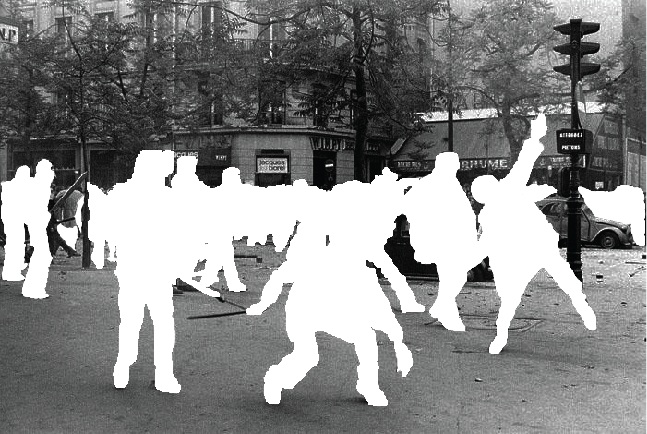MHI held two public discussions in New York City on May 22 and June 26, 2013. The meetings explored the recent history of failed revolts, the questions they raise, and the organizational challenges they pose to the movements and the left.
Why Do Popular Movements Vanish? And Do They Have To?
Click the screens below to see videos of the two meetings.
An announcement of the meetings was posted May 8, 2013 and amended June 3, 2013, as follows:
Why do popular movements fail and die? Is the problem as simple as their not having the “right ideas” or the “right form of organization,” as many people say–both vanguardists and anarchists? We don’t think so. As Hegel noted, all beginnings are defective; the problem is not that radical movements don’t immediately succeed, but that the lack of immediate success causes them to vanish instead of to reorganize. We think this “stopping dead” results from the lack of a concept and process for collective review, re-thinking, and re-direction. What procedures and processes might movements institute in order to go through “second negation,” so that new beginnings in thought and activity have a chance to develop?
In the first discussion, we looked at the facts and implications of some high points and vanishings of mass movements in the 1960s (such as the Civil Rights Movement and the near-revolution in France in 1968), the 1980s (multi-million strong international anti-nuke movement), and 2000s (anti-war, anti-globalization and Occupy movements). Now we will face concretely the questions raised by their trajectories. Eschewing both romantic defeatism (the view that the struggle is all-important, and winning goals is not), and vanguardist solutions, we will try to pose suggestions for the re-organization of left thought and activity.
———————————————————————————————————-
[Added May 15, 2013] Some suggested preparatory readings are here
1979: Dunayevskaya, “Not so Random Thoughts on: What is Philosophy? What is Revolution?”
Page numbers are to Volume XIII of her Archives, “Supplement to the Raya Dunayevskaya Collection,” at Wayne State University Archives of Labor and Urban Affairs, Detroit, MI 48202. Excerpts:
p. 10841. Dated Dec. 22, 1986. Part of entry 18 in the Guide that starts on p. 10837
pp. 10953-5. Dated May 19, 1987. Part of entry 36 that starts on p. 10942. The most relevant part is at the very end, on p. 10955, but the previous 2 pages may help put it in context.
pp. 10963-4. Dated May 25, 1987. Part of entry 38 that starts on p. 10959. This is a draft of her final (June 1) presentation. The paragraph in question isn’t in the June 1 version. It is in between “Because …” and “Take Pannekoek.”
For the original announcement of the meeting, and comments on it, click here.



Be the first to comment